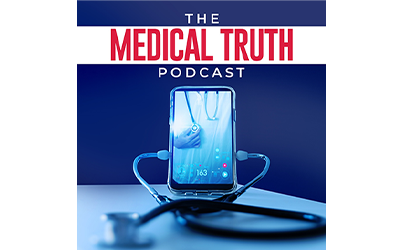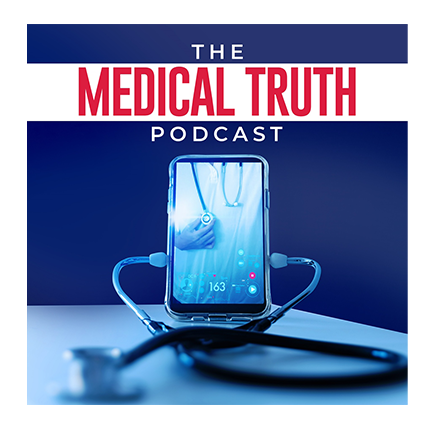The Medical Truth Podcast, hosted by James Egidio, presents a poignant episode featuring guest Scott Schara. Scott recounts the heart wrenching story of his his daughter, Grace, who tragically passed away due to medical malpractice. This episode serves as a clarion call to reevaluate our perceptions of the healthcare system and its prioritization of profit over people. Scott paints a vivid picture of his daughter, who he describes as a bundle of joy, with a unique love chromosome that made her love everyone unconditionally. Her high functioning abilities nurtured by her mother’s homeschooling, and Scott cherishes her sense of humor the most.
The episode delves into Scott’s extensive research into the financial incentives that drive medical decisions in hospitals, particularly in the context of the COVID-19 pandemic. Scott reveals a disconcerting reality where ventilators were being overused, leading to an alarming mortality rate in COVID-19 patients, all due to the financial gains accruing from their usage. He argues that this financial motive, combined with an underlying bias against individuals with Down Syndrome, led to lack of proper care for Grace during her hospitalization. The excessive references to her diagnosis in medical reports are cited as evidence of this bias. Scott notes that the doctors initially recommended a treatment that could have saved Grace’s life, but this treatment was not administered.
This emotional episode is a cautionary tale about the importance of advocating for oneself and loved ones when seeking medical care, especially during times of public health emergencies. Scott’s passion for sharing his daughter’s story as a warning to others is evident as he urges listeners to do their research and not blindly trust medical professionals and their protocols. Scott’s story takes a dramatic turn as he shares his journey of reporting the hospital for negligence and subsequently appearing on national television. He highlights the concept of the esoteric dialectic and a paper he wrote on the United States Health and Human Services secretary’s ability to kill its citizens. The paper provides a stark revelation of how the government can legally kill it’s citizens, with Pfizer’s defense in a false claims act case filed by a former employee cited as an example.
The conversation takes a spiritual turn as the speakers discuss the idea that only God can remove the scales from our eyes and make us believe. Scott shares his experience of becoming an advocate after his daughter’s tragic death, suggesting that people do not believe in something until it impacts them personally. The speakers agree that Satan is real and is deceiving people. Scott has started a podcast called Deprogramming with Grace’s Dad, where he talks about the things he used to believe and how he has been deprogramming himself.
The conversation pivots towards the idea of increasing dependency on public assistance by targeting the elderly and disabled population through gene therapy vaccinations. The speakers suggest that insurance companies may use medical events such as myocarditis or stroke as an excuse not to cover individuals, making them reliant on government assistance. They propose that getting out of the system is the only answer to handle the fast paced barrage of information and events coming at us.
This episode of The Medical Truth Podcast is a powerful testimony to the need for change in the healthcare system. Scott’s emotional retelling of his daughter’s tragic story serves as a stark reminder of the need for self advocacy in medical care, especially during times of public health crisis. His journey to expose the truth about the healthcare system and the government’s potential to harms its citizens is a wake up call for all of us. The spiritual undertones of the conversation, coupled with the speaker’s concerns about increasing government control, make this episode a thought-provoking and powerful contribution to the public health system.
The conversation ends with a note of caution: we must be prepared for the challenges that lie ahead, we must not let fear guide our decisions. As Scott and James suggest, being unvaccinated and Christian may make individuals targets in the current climate. But in the face of adversity, we must hold fast to our values and beliefs, and never lose sight of the humanity that connects us all.







